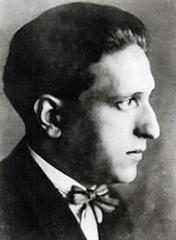|
Back
A Tragic Truncation New York
BargeMusic
07/14/2019 -
Franz Schubert: Allegro molto moderato from String Quartet No. 15 in G Major, D. 887
Dmitri Shostakovich: Adagio from String Quartet No. 10, Opus 118
Pavel Haas: Landscape (Krajina) Andante from String Quartet No. 2, “From the Monkey Mountains”
Maurice Ravel: String Quartet in F Major
Ulysses Quartet: Christina Bouey, Rhiannon Banerdt (Violins), Colin Brookes (Viola), Grace Ho (Cello)

Ulysses Quartet in Taiwan (© Courtesy of the Artists)
“The supreme question about a work of art is out of how deep a life does it spring.”
James Joyce (1882-1941), from Ulysses, Episode Nine, Scylla and Charybdis
The program announced by the Ulysses Quartet did sound Homeric. This promised to be an epic afternoon including Schubert’s last (and probably longest) string quartet, an equally heroic Shostakovich quartet, Ravel’s magical String Quartet, and an unknown work by the Leos Janácek’s student Pavel Haas, whose career came to an end at the age of 45 in the gas chambers of Auschwitz.
However (to quote Bogart on the waters in Casablanca) I was misinformed. The Ulysses Quartet did play the Ravel in full. The three other works were castrated. A single movement each. In theory, this was unfair. In practice yesterday at BargeMusic, it probably left the full-house audience (as it did me) emotionally bereft.
Who, I wondered could take a work written by Schubert as death pursued only to cut it short? A work that in four movements and almost an hour in duration encompassed major and minor indecision, tremulous string playing, plaints and playing...only to stop suddenly at the end of the first movement?
Schubert had so much to say, and was never given the chance to say it.
The Shostakovich passacaglia and variations were played well enough, but were hardly representative of a work which included a hurdy-gurdy, with Armenian modes. Nor was it acceptable to segue this strict Russian Adagio into the more easy-going opening Pavel Haas quartet that promised a picturesque image of the Czech “monkey mountain” countryside.
To its credit, Ulysses Quartet, winning dozens of awards in their four years, is a terrific ensemble, as they showed in the complete (thank you, Zeus or Jupiter, in the case of this composer, Hermes) Ravel Quartet. As the most luscious, dancing French string quartet, it takes a young group to set it on its paces. Yes, the first and third movements are lovely, but the Ulysses Quartet did the two viv movements credit. Perhaps not the quartet as a whole, because Ravel gave so many different colors to each instrument.
With the whole Ulysses Quartet, one began to hear how violist Colin Brookes was the master of the strong lines. Cellist Grace Ho was more subtle, she had her fine solos in the Schubert, but here we waited for those delicious pizzicatos, here interweaving lines, frequently higher than the viola. The two violinists etched in their lines with fine brush strokes.
This is not a work to offer fervent romance. The joy is in the fiercely intricate counterpoint, and the Ulysses Quartet has the fingers play this with pleasure rather than urgency.
Perhaps because we could hear the full piece, from the near-yearning opening to the fierce agitation, it finished the recital with a sense of...well, of completion.
Listening to the opening of the Schubert is like listening to the opening of a Mahler symphony. So much feeling, such anxiety and pain and sheer beauty, and the Ulysses Quartet was ready to dig deeply into its merits. One heard an ensemble ready to give us a universe of riddles and songs and perplexities, and then...well, it was over.
The Shostakovich third movement from the Tenth Quartet was almost a shock after the Schubert. It was played well, the variations were striking, but it was cold, objective. And then, with no pause, no applause we were suddenly into Pavel Haas.

P. Haas
Like his teacher and mentor Leos Janácek, Haas here virtually spoke his music. Coming, though, right after the Shostakovich, one couldn’t immediately come to grips with the difference.
And later, hearing more of the Second Quartet, one realized how original Pavel Haas was (even adding percussion to the last movement). The little heard yesterday was delightful. Like Oliver Twist, though, we really wanted to have a little...oh hell, a lot more.
And I can’t wait to hear their next real concert.
Harry Rolnick
|